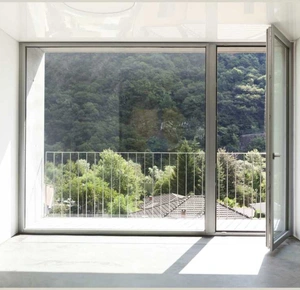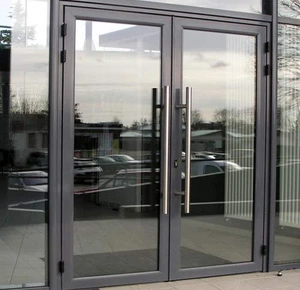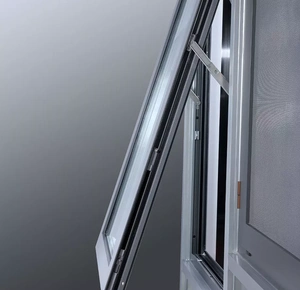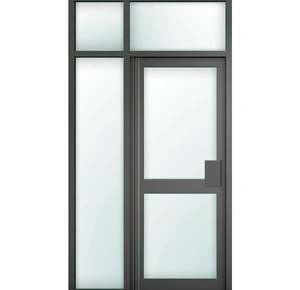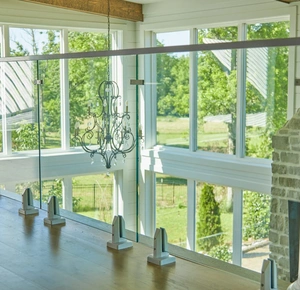Choosing the Right Aluminium Windows and Doors for Noise Reduction
In today’s fast-paced world, more homeowners are prioritizing comfort and peace within their living spaces. One of the key challenges, especially in urban areas, is reducing noise pollution inside the home. If you live near a busy street, railway, or industrial area, noise can easily disturb your peace. Thankfully, installing the right aluminium windows and doors can make a significant difference in soundproofing your home.
Aluminium windows and doors are well-known for their durability, sleek design, and low maintenance, but they also offer excellent noise reduction properties when paired with the right features. In this article, we’ll explore how to choose the best aluminium windows and doors for noise reduction, ensuring a quieter, more serene home environment.
1. Understanding How Sound Travels Through Windows and Doors
Before diving into the specific features of aluminium windows and doors that enhance noise reduction, it’s important to understand how sound travels. Noise enters your home in two primary ways:
- Airborne sound: Noise from traffic, conversations, or music can enter through the air gaps in windows and doors.
- Structure-borne sound: Vibrations from heavy machinery, footsteps, or trains can travel through walls, doors, and window frames.
Properly designed aluminium windows and doors can significantly reduce the transmission of both types of sound by creating a barrier that dampens the noise before it reaches your ears.
2. Double or Triple Glazing for Improved Noise Reduction
One of the most effective ways to reduce noise entering your home is by installing double or triple glazing in your aluminium windows and doors. These systems consist of two or three panes of glass separated by an insulating layer of air or gas, such as argon.
Double-glazed windows can block out a considerable amount of noise, while triple-glazed windows offer even better soundproofing. The gap between the glass panes acts as a barrier to sound waves, reducing their ability to travel through the glass.
Benefits of double and triple glazing for noise reduction:
- More effective insulation: The additional panes create layers that absorb and deflect sound, providing a quieter indoor environment.
- Reduction of airborne noise: Glazed windows and doors are particularly effective at blocking out high-frequency sounds, such as traffic noise or loud conversations from outside.
When selecting aluminium windows and doors, look for double or triple glazing options if noise reduction is a priority. In many cases, triple glazing is the best choice for homes in extremely noisy environments, such as city centers or industrial areas.
3. Choosing the Right Glass for Acoustic Performance
The type of glass used in your aluminium windows and doors can have a huge impact on how well they reduce noise. Not all glass is created equal when it comes to soundproofing, so it’s important to choose the right type for your needs.
Acoustic glass is specially designed to improve sound insulation. This type of glass typically consists of two layers of glass with a polyvinyl butyral (PVB) interlayer sandwiched between them. The PVB layer dampens sound waves, making it harder for them to pass through the glass.
Advantages of acoustic glass for noise reduction:
- Improved soundproofing: Acoustic glass is more effective at reducing low-frequency noises, such as heavy traffic or loud engines, which can penetrate regular glass more easily.
- Extra security: Acoustic glass also offers the benefit of enhanced security, as the PVB interlayer strengthens the glass, making it more resistant to breakage.
When selecting windows and doors for noise reduction, look for models that offer acoustic laminated glass to ensure the highest level of sound insulation.
4. Thermal Break Technology for Noise and Heat Insulation
While thermal break technology is typically associated with improving energy efficiency, it also plays a role in noise reduction. Thermal breaks are insulating materials placed between the inside and outside sections of the aluminium frame, which reduce heat transfer. However, they also help dampen vibrations, reducing structure-borne noise that might otherwise travel through the window or door frame.
Benefits of thermal breaks for noise insulation:
- Vibration reduction: By absorbing sound vibrations, thermal breaks reduce the amount of noise that can pass through the aluminium frame.
- Enhanced soundproofing: Combining thermal breaks with acoustic glass and double glazing provides a comprehensive solution to both heat and noise insulation.
When choosing aluminium windows and doors, opt for frames with thermal breaks to ensure that both sound and temperature are properly insulated.
5. Seals and Weatherstripping for Airborne Noise Reduction
Even the best windows and doors will not perform optimally if they aren’t properly sealed. Air leaks can allow a significant amount of noise to enter your home, even with high-quality glass and frames. To maximize noise reduction, it’s essential to ensure that your aluminium windows and doors are equipped with high-quality seals and weatherstripping.
Key elements of effective seals and weatherstripping:
- Rubber or silicone seals: These materials are flexible and durable, providing an airtight barrier that prevents noise from seeping through gaps around windows and doors.
- Double-sealed frames: Double-sealed systems provide an extra layer of protection by using two sets of seals, further reducing airborne noise.
- Compression gaskets: These gaskets help create a tight fit when the door or window is closed, preventing sound from leaking through gaps.
Ensure that your windows and doors are well-sealed and weatherproofed to block out external noise effectively. Proper installation of seals is just as important as choosing the right glazing and frame materials.
6. Thicker Frames for Enhanced Soundproofing
Although aluminium is typically chosen for its slim, modern profile, opting for thicker frames can significantly improve soundproofing. Heavier, thicker frames provide more mass, which helps block sound waves from traveling through the structure of the window or door.
Advantages of thicker aluminium frames:
- Greater sound insulation: Heavier frames absorb more sound, reducing the amount of noise that enters your home.
- Stronger construction: Thicker aluminium frames are also more robust, making them ideal for homes located in particularly noisy environments.
When selecting aluminium windows and doors, ask for thicker frame options to further improve the soundproofing performance of your installation.
7. Customized Aluminium Windows and Doors for Specific Needs
The beauty of choosing custom aluminium windows and doors is the ability to tailor them to your specific noise reduction needs. Homes located in high-noise areas may require different soundproofing solutions than those in quieter environments.
Customization options include:
- Window shape and size: Larger windows and sliding doors can let in more noise, so choosing smaller or double-sealed custom windows may improve sound insulation.
- Layered glazing and acoustic glass: Custom windows and doors can be fitted with multiple layers of glazing and acoustic glass, offering superior soundproofing.
- Personalized frame design: You can customize the thickness and material composition of the frames to ensure the best noise reduction based on your home’s location and design.
Working with a professional to design custom aluminium windows and doors ensures that you get the best noise reduction performance tailored specifically to your living conditions.
Conclusion
Choosing the right aluminium windows and doors for noise reduction is essential for creating a quiet, comfortable living environment. By focusing on key features such as double or triple glazing, acoustic glass, thermal breaks, high-quality seals, and thicker frames, you can effectively block out unwanted noise from outside.
Investing in custom aluminium windows and doors allows you to enjoy both peace and privacy while also benefiting from the durability, energy efficiency, and sleek aesthetics that aluminium provides. Whether you live in a bustling urban area or near a busy road, the right aluminium installations will transform your home into a quieter and more serene space.
Frequently Question and Answers
How do aluminium windows and doors help with noise reduction?
Aluminium windows and doors reduce noise through double or triple glazing, acoustic glass, and thermal breaks in the frames. These features create barriers that block sound waves from entering your home.
What is acoustic glass, and how does it reduce noise?
Acoustic glass consists of two layers of glass with a polyvinyl butyral (PVB) interlayer, which absorbs and dampens sound waves. It is particularly effective at reducing low-frequency noises, like traffic or construction sounds.
Are double-glazed aluminium windows enough for noise reduction?
Double-glazed windows provide good noise reduction by adding an insulating layer between two panes of glass. However, triple glazing or acoustic glass is more effective in areas with higher noise levels.
How do thermal breaks in aluminium frames help with soundproofing?
Thermal breaks are insulating layers within the aluminium frames that reduce heat transfer. They also absorb sound vibrations, helping to prevent structure-borne noise from passing through the window or door frame.
Do I need thicker frames for better noise reduction?
Yes, thicker aluminium frames provide more mass, which helps block sound waves more effectively. Opting for thicker frames can enhance the overall soundproofing performance of your windows and doors.
Can I customize aluminium windows and doors for better noise insulation?
Absolutely. You can customize window sizes, glass types, and frame thickness to fit your specific noise reduction needs. Custom solutions allow for the best performance in high-noise areas like urban environments or near busy roads.
